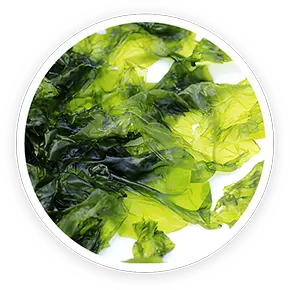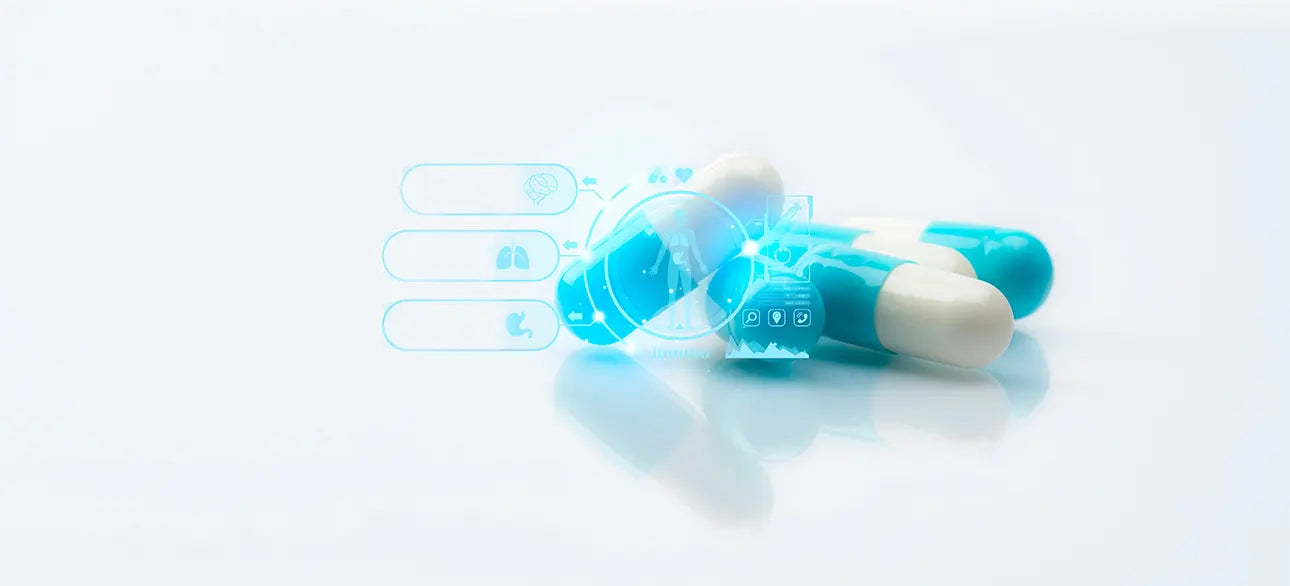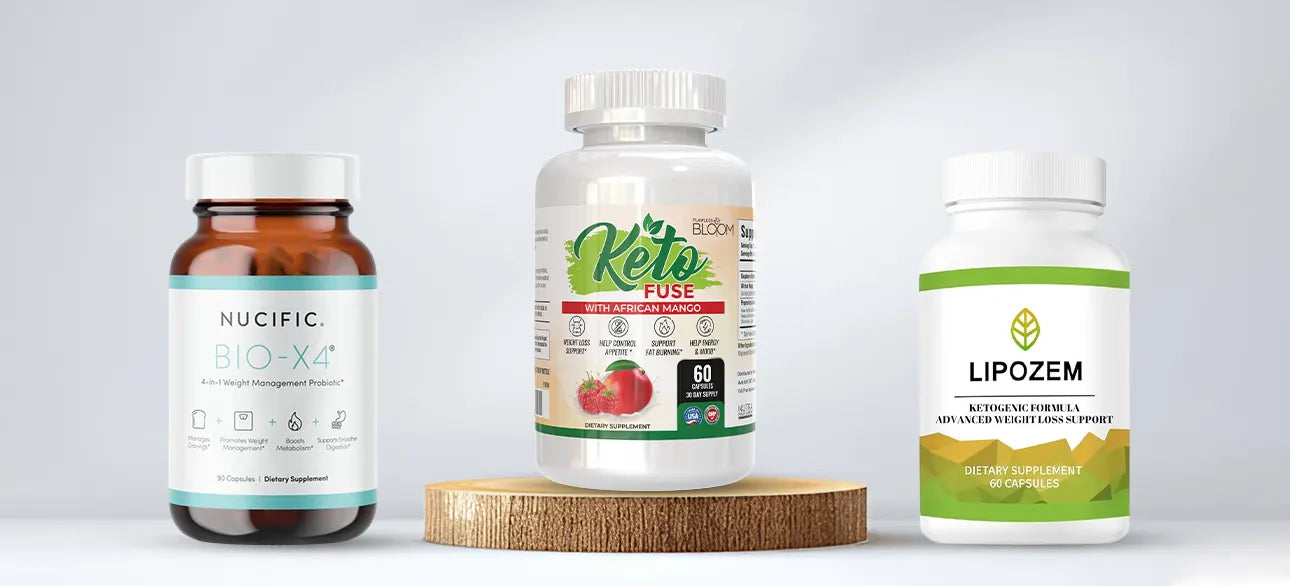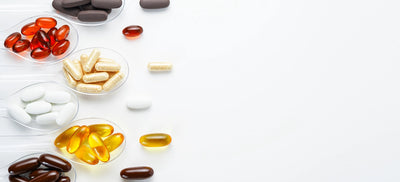Avis sur la prostadine : améliore-t-elle réellement la santé de la prostate ?
Prostadine promet un soutien naturel pour la santé de la prostate grâce à des ingrédients comme le palmier nain et l'extrait de nori yaki. Découvrez si cette formule liquide peut réellement améliorer votre bien-être !
Advertiser Disclosure: We independently select all the products. If you click through links we provide, we may earn a commission.

Points clés à retenir
- Prostadine contient un mélange de neuf ingrédients naturels, mais tous ne sont pas solidement étayés par la recherche.
- Les avis mitigés des utilisateurs soulignent à la fois le soulagement des symptômes et les préoccupations concernant la constance et l'efficacité du produit.
- Les commentaires positifs font état d'une urgence réduite et d'un confort accru, tandis que les avis négatifs remettent en question son authenticité.
- Le format liquide offre une utilisation facile, mais a reçu des réactions mitigées concernant le goût et les résultats.
- L'efficacité de la prostadine est discutable, compte tenu de ses résultats inconstants et de son prix relativement élevé.
- Consultez un professionnel de la santé et envisagez des alternatives comme ProstateSP.
C’est un malaise silencieux dont beaucoup ne parlent pas : ces nuits blanches, ces interruptions constantes et cette inquiétude lancinante quant à ce qui se passe réellement « là-bas ».
Contrairement à une idée répandue, la santé de la prostate n'est pas seulement un problème lié à l'âge ; c'est une réalité qui peut affecter votre rythme de vie, votre confiance en vous et votre tranquillité d'esprit. Face à l'engouement pour les solutions naturelles, trouver un traitement vraiment efficace peut s'avérer complexe.
Prostadine affirme être à la hauteur. Ce mélange de neuf ingrédients naturels prétend favoriser la santé de la prostate et du système urinaire de façon simple et efficace.
Mais est-ce vraiment le cas ? Dans cet article, nous analyserons ses ingrédients, son efficacité et son rapport qualité-prix pour vous aider à décider si Prostadine mérite une place dans votre routine bien-être.
Analyse des ingrédients
Prostadine associe neuf ingrédients naturels, chacun sélectionné pour son potentiel à soutenir la santé de la prostate et des voies urinaires. Parmi ceux-ci, cinq composants clés se distinguent : le palmier nain, l’extrait de nori yaki en poudre, l’extrait de grenade, la poudre de varech et la poudre de fucus vésiculeux.
Si certains de ces ingrédients bénéficient d'une solide base scientifique, d'autres ne disposent pas de preuves suffisantes pour étayer leurs allégations. Voici un examen plus approfondi de chaque ingrédient ;
palmier nain
 palmier nain
palmier nain
Le palmier nain , issu des baies de la plante Serenoa repens, est l'un des ingrédients les plus étudiés dans les compléments alimentaires pour la santé de la prostate.
Elle est largement reconnue pour son potentiel à soulager les symptômes de l'hyperplasie bénigne de la prostate (HBP), une affection qui provoque une augmentation du volume de la prostate et des difficultés urinaires.
On pense que les composés actifs du palmier nain inhibent l'enzyme 5-alpha-réductase, qui convertit la testostérone en dihydrotestostérone (DHT), une hormone liée à la croissance de la prostate.
Une étude de 2011 a montré qu'une dose quotidienne de 320 mg de palmier nain peut améliorer le débit urinaire, réduire les mictions nocturnes et améliorer la qualité de vie globale des hommes atteints d'HBP.
Cependant, les recherches ne sont pas toutes unanimes, certaines études faisant état de bénéfices limités.
Malgré cela, le palmier nain reste l'un des ingrédients les plus crédibles de la Prostadine, offrant un mécanisme d'action bien documenté et une longue tradition d'utilisation dans la prise en charge des problèmes liés à la prostate.
Nous approuvons cet ingrédient.
Selon le Dr J. Matt Williams
Le palmier nain a démontré son efficacité pour favoriser la santé de la prostate, notamment chez les hommes souffrant d'hypertrophie bénigne de la prostate (HBP). Sa capacité à réduire les symptômes tels que les mictions fréquentes et à améliorer le débit urinaire en fait un ingrédient de confiance dans les compléments alimentaires pour la santé de la prostate.
Extrait de poudre de nori yaki
 Extrait de poudre de nori yaki
Extrait de poudre de nori yaki
La poudre d'extrait de Nori Yaki, dérivée d'algues, est un concentré de nutriments offrant de nombreux bienfaits pour la santé, notamment un soutien potentiel pour la santé de la prostate et du système urinaire.
Cet ingrédient est riche en vitamines essentielles telles que les vitamines A, B, C, D, E et K, ainsi qu'en minéraux comme le calcium, le fer et l'iode.
Sa teneur élevée en iode est particulièrement remarquable, car l'iode joue un rôle essentiel dans le maintien de la santé de la thyroïde, ce qui influence indirectement l'équilibre hormonal, un facteur clé de la fonction prostatique.
De plus, le nori yaki contient des antioxydants qui aident à combattre le stress oxydatif, un facteur contribuant aux dommages cellulaires et à l'inflammation dans le corps, notamment au niveau de la prostate.
Ce qui distingue le nori yaki, c'est sa combinaison unique de nutriments qui peuvent favoriser la santé urinaire en stimulant la détoxification et en réduisant l'inflammation. La présence de fer biodisponible et de vitamine C améliore la circulation sanguine, ce qui pourrait être bénéfique pour la santé globale de la prostate.
Bien que les études directes sur l'impact du nori yaki sur la prostate soient limitées, son profil nutritionnel et ses propriétés antioxydantes sont impressionnants.
Nous approuvons cet ingrédient.
Extrait de grenade
 Extrait de grenade
Extrait de grenade
L'extrait de grenade est réputé pour ses puissantes propriétés antioxydantes, principalement grâce à sa forte teneur en polyphénols comme l'acide ellagique et les punicalagines.
Ces composés sont censés réduire le stress oxydatif et l'inflammation, deux facteurs importants pour la santé de la prostate.
Les premiers essais cliniques ont suggéré que le jus de grenade pourrait ralentir la progression des niveaux d'antigène prostatique spécifique (PSA) chez les hommes atteints d'un cancer de la prostate, suscitant un intérêt pour ses bienfaits potentiels.
Cependant, des études ultérieures ont donné des résultats mitigés, certaines ne montrant aucun impact significatif sur la santé de la prostate ou les symptômes urinaires. Bien que la grenade soit sans danger et offre des bienfaits antioxydants généraux, son efficacité spécifique pour la santé de la prostate reste à démontrer.
Cela rend son rôle dans Prostadine plus spéculatif que fondé sur des preuves.
Nous n'approuvons pas cet ingrédient.
Poudre d'algues
 Poudre d'algues
Poudre d'algues
La poudre de varech, une algue brune, est un ingrédient riche en nutriments, notamment en iode, en potassium et en autres oligo-éléments.
On le retrouve souvent dans les compléments alimentaires pour ses propriétés détoxifiantes et son soutien à la santé thyroïdienne. L'iode qu'il contient est essentiel au bon fonctionnement de la thyroïde, ce qui peut influencer l'équilibre hormonal et, par conséquent, la santé de la prostate.
Cependant, aucune preuve directe ne relie la consommation de varech à une amélioration de la fonction prostatique ou de la santé urinaire. Bien que sa richesse en fibres puisse offrir certains bienfaits digestifs, ceux-ci ne sont pas spécifiques à la santé de la prostate.
L'inclusion du varech dans Prostadine semble davantage reposer sur ses bienfaits généraux pour la santé que sur une action ciblée sur la prostate, ce qui rend sa contribution à la formule discutable. Par conséquent, nous
Nous n'approuvons pas cet ingrédient.
Poudre de fucus vésiculeux
 Poudre de fucus vésiculeux
Poudre de fucus vésiculeux
La poudre de fucus vésiculeux, une autre algue brune, est riche en iode et présente des bienfaits potentiels pour la thyroïde et le système urinaire. Tout comme le varech, le fucus vésiculeux est riche en nutriments et est utilisé en médecine traditionnelle pour traiter divers maux.
Cependant, les preuves scientifiques étayant son rôle pour la santé de la prostate sont minimes. La plupart des affirmations concernant le fucus vésiculeux sont anecdotiques ou fondées sur ses bienfaits généraux pour la santé, comme faciliter la digestion et apporter des antioxydants.
En l'absence de données cliniques solides, son inclusion dans Prostadine semble davantage relever d'un agent de remplissage que d'un composant fonctionnel.
Ce manque de bénéfices ciblés soulève des questions quant à sa valeur globale en tant que complément alimentaire.
Nous n'approuvons donc pas cet ingrédient.
Guide de décision rapide : Prostate Revive comparé à notre complément alimentaire le mieux noté pour la santé de la prostate (Prostate SP)
Table des matières |
Prostadine |
ProstateSP |
|---|---|---|
Produit |
 |

|
Notation |
||
Prix |
69 $ | 46,55 $ |
Avis des utilisateurs |
Mixte | Majoritairement positif |
Efficacité du produit |
72% | 95% |
Certification |
Certifié BPF | Certifié BPF |
Politique de retour |
Garantie de remboursement de 60 jours | Garantie de remboursement de 60 jours |
Fabricant |
Prostadine | Floraison impeccable |
Dosage |
deux pipettes pleines (2 ml) par jour | 2 capsules par jour |
Disponibilité |
En ligne uniquement |
En ligne uniquement |
Fabriqué aux États-Unis |
Oui | Oui |
| Lire l'avis ❯❯ |
Nous avons essayé la prostadine
 Prostadine
Prostadine
Séduits par la promesse d'ingrédients naturels et de soutien à la santé de la prostate, et compte tenu de sa popularité, nous avons décidé de tenter l'expérience avec Prostadine.
Ce produit se présente sous forme de flacon compte-gouttes, facile à intégrer à une routine quotidienne. Le mode d'emploi est simple : deux gouttes par jour, à prendre pur ou dilué dans une boisson.
Pendant quelques semaines, nous avons surveillé ses effets sur la fonction urinaire, les niveaux d'énergie et le bien-être général.
Au départ, un certain optimisme régnait. Le mélange d'ingrédients comme le palmier nain et la poudre d'extrait de nori-yaki semblait avoir été soigneusement choisi.
Cependant, les résultats se sont avérés décevants. Bien qu'une légère amélioration du débit urinaire ait été constatée, elle n'était pas suffisamment significative pour justifier les affirmations. Le produit ne semblait pas non plus avoir d'effet notable sur l'énergie ou le bien-être général.
La qualité des ingrédients semblait inégale. Certains composants, comme le palmier nain, sont étayés par des recherches, mais d'autres manquent de preuves solides concernant leurs bienfaits pour la santé de la prostate.
L'efficacité était également préoccupante, car les bénéfices ne correspondaient pas aux promesses ambitieuses. Bien que Prostadine soit facile à utiliser et généralement sûr, il ne produit pas de résultats mesurables. Compte tenu de la qualité des ingrédients, de son efficacité et de son impact global, nous ne le recommandons pas.
De même, ProstaVive prétend être la meilleure solution pour améliorer la santé urinaire. Cependant, après avoir lu les avis sur ProstaVive , vous serez peut-être surpris par ce que les utilisateurs pensent de ce complément alimentaire.
Effets secondaires et sécurité
La prostadine est généralement bien tolérée, la plupart des utilisateurs ne signalant aucun effet secondaire grave. Cependant, certaines personnes ont mentionné de légers troubles digestifs, surtout lorsqu'elle est prise à jeun.
Quelques utilisateurs ont également constaté une augmentation initiale de la fréquence des mictions, possiblement liée aux propriétés détoxifiantes des ingrédients. La formule liquide a reçu des avis partagés, certains la trouvant désagréable au goût.
Ce produit est présenté comme sûr pour la plupart des hommes, notamment ceux de plus de 40 ans souffrant de problèmes de prostate ou urinaires. Sa formule naturelle, sans OGM, est exempte de stimulants et d'additifs artificiels, ce qui la rend adaptée à une utilisation prolongée.
Toutefois, les personnes souffrant de problèmes de santé préexistants ou prenant des médicaments devraient consulter un professionnel de la santé avant utilisation.
La teneur en iode de la prostadine peut ne pas convenir aux personnes souffrant de problèmes thyroïdiens. Bien qu'elle offre une alternative naturelle, son utilisation optimale dépend des besoins et de l'état de santé de chaque individu.
Au cours de nos recherches, nous avons découvert une vidéo instructive sur la chaîne de @Jordan Liles, qui aborde les avis et les rapports des consommateurs sur la prostadine. Cette vidéo fournit des explications détaillées et des informations précieuses sur le sujet.
Avis clients authentiques
Prostadine a reçu des avis mitigés sur différentes plateformes. Sur Amazon, le produit obtient une note moyenne de 2,9 étoiles sur 5, les opinions étant partagées entre utilisateurs satisfaits et déçus par son efficacité.
Un utilisateur d'Amazon a partagé son avis :
Après seulement quelques jours d'utilisation, je constate une diminution des symptômes d'hypertrophie de la prostate, comme les envies fréquentes d'uriner et les brûlures. En plus, c'est bon !
À l'inverse, un autre utilisateur d'Amazon a exprimé sa frustration, déclarant :
J'ai vu une publicité pour ce même produit, portant le même nom, en ligne. Apparemment, il avait une odeur et un goût exécrables, et il fallait le diluer dans une autre boisson pour pouvoir le boire. Or, à la réception du mien, l'odeur, l'apparence et le goût sont identiques à ceux de l'eau. Après un mois d'utilisation, il est totalement inefficace. Je suis convaincue d'avoir été arnaquée et que ce produit n'est rien d'autre que de l'eau.
Les avis révèlent une clientèle partagée. La prostadine peut être efficace pour certains, mais ses résultats inconstants et l'accueil mitigé qu'elle reçoit laissent penser qu'elle ne répondra pas aux attentes de tous.
Où trouver les meilleures offres
Prostadine est disponible à l'achat principalement sur son site officiel, ce qui garantit son authenticité et l'accès à des offres exclusives telles que des bonus gratuits et une garantie de remboursement de 60 jours. Bien qu'il puisse apparaître sur des plateformes comme Amazon ou Walmart, l'achat direct sur le site officiel est recommandé afin d'éviter les contrefaçons.
Le prix de départ est de 69 $ pour un flacon, avec des réductions pour les achats en gros. Comparé aux autres compléments alimentaires pour la santé de la prostate , le prix de Prostadine se situe dans la fourchette haute, plus élevé que celui de la plupart des compléments de la même catégorie, ce qui justifie son prix plus élevé grâce à des ingrédients naturels et de qualité.
Prostadine contre ProstateSP
Prostadine et ProstateSP répondent à différents besoins en matière de santé de la prostate. Prostadine est une formule liquide composée de neuf ingrédients naturels, dont le palmier nain et le varech, conçue pour une détoxification prostatique à long terme et un équilibre hormonal. Son prix est de 69 $ la bouteille, avec des réductions pour les achats en gros.
ProstateSP , quant à lui, propose une formule en capsules axée sur un soulagement rapide. Il contient du bêta-sitostérol, du zinc et de l'huile de pépins de courge, reconnus pour réduire les symptômes urinaires et favoriser une vie sexuelle épanouie . ProstateSP est proposé à 46,55 $, un prix très compétitif compte tenu de sa qualité.
Alors que Prostadine met l'accent sur un soutien progressif et global, ProstateSP se distingue par son prix abordable et son soulagement ciblé des symptômes, séduisant ainsi ceux qui recherchent des résultats immédiats.
Avantages et inconvénients de la prostadine
Avantages :
- Contient neuf ingrédients naturels
- Formule liquide pour une meilleure absorption
- Favorise la santé de la prostate et des voies urinaires
- Sans OGM, sans stimulants et sans produits chimiques
- Comprend une garantie de remboursement de 60 jours
- Offre des remises sur les achats en gros
- Format compte-gouttes facile à utiliser
Cons
- Disponible uniquement via le site officiel
- Nécessite une utilisation régulière pour des résultats visibles
- Les goûts et les couleurs ne plaisent pas à tout le monde.
- Prix plus élevé que certaines alternatives
Conclusion
Prostadine se présente comme une solution naturelle pour la santé de la prostate, mais son efficacité reste sujette à débat. Si certains utilisateurs rapportent un soulagement de symptômes tels que l'urgence et l'inconfort liés à la miction, d'autres s'interrogent sur son efficacité et sa constance.
Le mélange d'ingrédients naturels est prometteur, mais tous ne sont pas étayés par des preuves solides concernant leur efficacité pour la santé de la prostate.
À ce prix, la Prostadine peut sembler un pari risqué : elle offre des avantages potentiels à certains, mais s’avère décevante pour d’autres. Si vous envisagez de l’utiliser, examinez attentivement les avis mitigés et la qualité des ingrédients.
En définitive, la prostadine est une option, mais pas une solution miracle. Pour des résultats plus rapides, des ingrédients de qualité et un prix juste, nous recommandons ProstateSP. Votre santé mérite des choix éclairés ; explorez donc les alternatives et consultez un professionnel avant de prendre une décision.
FAQ
References
Flawless Bloom has strict sourcing policies and relies on primary sources such as medical organizations, academic institutions, governmental agencies, and peer-reviewed scientific journals. Read more about how we ensure our content is accurate, thorough, and unbiased by reading our editorial process.
- Effet de doses croissantes de palmier nain sur les symptômes du bas appareil urinaire : un essai randomisé : https://doi.org/10.1001/jama.2011.1364
- Consommation d'algues et risque de cancer de la prostate : l'étude de cohorte de Miyagi : https://doi.org/10.1097/CEJ.0000000000000801
- Revue sur la grenade dans le cancer de la prostate : https://doi.org/10.1038/pcan.2017.19
- Effets de la supplémentation en varech sur la fonction thyroïdienne chez les sujets euthyroïdiens : https://doi.org/10.4158/EP.9.5.363
- Constituants phycochimiques et activités biologiques de Fucus spp : https://doi.org/10.3390/md16080249































